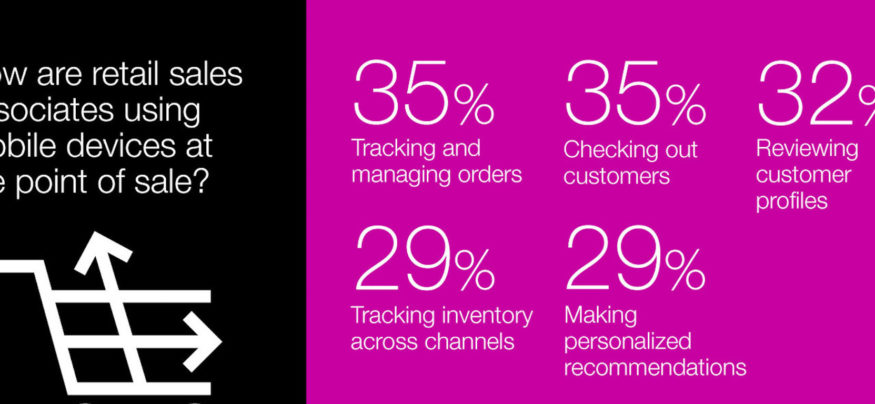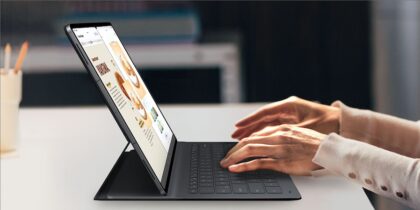With the recent explosion of mobile technology, the role of point-of-sale (POS) solutions has moved beyond the purely transactional to creating a more engaging shopping experience. With an eye on solutions that drive customer interaction and simplify payment processes, savvy retailers are transforming the in-store shopping experience with point-of-sale tablets.
As omni-channel retailing evolved, retailers soon learned that traditional POS methods, such as cash registers, were only one way to conduct transactions in a multi-channel world. With consumers demanding more ways to connect and do business with their favorite brands, sellers began integrating digital customer touch points at the store-level. Legacy POS devices soon gave way to more interactive, information-rich devices that merged online operations with personal in-store service.
Today, shoppers have become accustomed to using personal mobile devices to shop at home, while traveling and even while at the store. This presents a growing challenge to retailers, however, as shoppers now enter their stores with more information than the sales associates have, which can complicate the shopper-retailer dynamic.
The New Face of POS
Rather than being overwhelmed by the paradigm shift, savvy retailers are jumping behind the mobility trend, using it to drive innovation, intimacy and uniqueness within shopping experiences. According to Gartner’s Hype Cycle Special Report for 2014, “mobile is rapidly becoming the primary vehicle for business applications because it enables organizations to reach more users in more situations, and this creates vast business opportunities.”
Mobile devices are quickly becoming a key in-store shopping assistant. Tablets are now the most universal platform for mobile POS solutions, and retailers are configuring them in different ways to create informed shoppers while optimizing and speeding up the purchase experience. They can be fashioned into kiosks where shoppers can check on stock availability, link to a retailer’s Web page or place an order. Shoppers can also bring their own mobile devices and use branded applications to access similar information and services.
On the retailer’s end, tablets are helping sales associates manage day-to-day operations and engage with customers. Mobile POS (mPOS) is an evolving platform designed to mimic the functionality shoppers have on their own personal devices, but altered for store employees instead. According to a 2014 report from Edgell Knowledge Network (EKN), 35 percent of retailers use mPOS to track and manage shoppers’ orders, 32 percent review customer profiles, 29 percent make personalized recommendations and 29 percent track inventory across channels.
Mobile Payments: The Future of POS
The most impactful quality of mPOS is its ability to steamline check out and make payments easily. According to EKN’s report, 35 percent of retailers are already allowing mobile checkout. This is especially important with the advent of mobile payments. Essentially defined as a digital wallet, shoppers use a mobile application to store their debit and credit card numbers. The technology then electronically secures and transfers funds between payment terminals and shoppers’ devices. Tablet POS could be a catalyst to streamline mobile payment adoption.
Samsung is working toward this end with its acquisition of LoopPay. Its new mobile payment technology, known as Samsung Pay, could eventually be accepted at as many as 30 million merchants worldwide, and it doesn’t require any new infrastructure to work. A boon for Android users, Samsung is setting the tone by integrating the platform into its popular Galaxy S7 smartphone.
Samsung is also working to create back-end flexibility and seamlessness for retailers with the help of Verifone. Together, the team created an advanced mPOS solution integrating an 8-inch Samsung Galaxy tablet with commerce-enabling software that delivers targeted marketing and advertising, mobile payment options, traditional credit card readers and security measures, including EMV, point-to-point encryption and Samsung KNOX mobile security.
The adoption of point-of-sale tablets at the store level will help retailers engage with shoppers in new and innovative ways. By proactively responding to customers’ mobility demands with more service options, including mobile payment processing, forward-thinking retailers are positioning themselves for future success.
Want to learn more about Samsung’s mobile POS offerings? Visit our retail solutions page.








